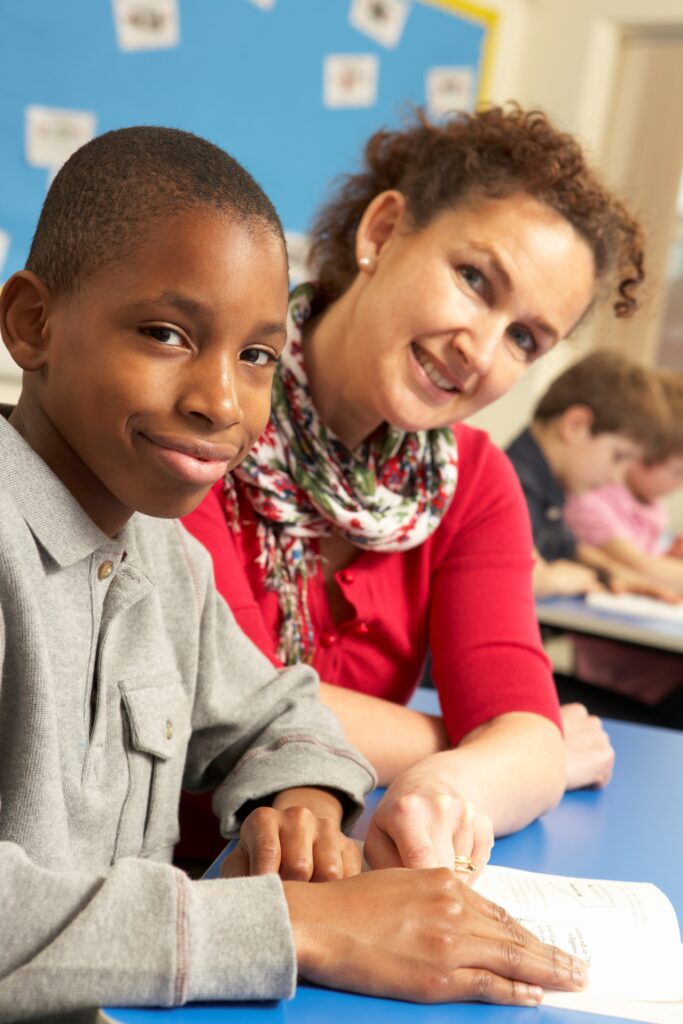Evaluation and Assessments

MEET OUR TEAM
Special Education Program Evaluations:
Our Special Education Program Evaluations are guided by best practices and leverage collaboration with stakeholders to determine current effectiveness of a specific district program, through identifying areas of strength and areas for improvement. The final report will detail the evidence acquired through the evaluation process, as well as provide action-oriented recommendations to guide future decision-making.
Our Senior Consultants have completed Program Evaluations for a variety of public school programs, including:
- Autism/ABA Programs
- Therapeutic/Social-Emotional Programs
- Language-Based Programs
- Alternative Education Programs
- … and more!
The Special Education Program Evaluation process includes a thorough record review, structured observations, and staff and administrator interviews. We use best practice quality indicators and other applicable tools to guide our evaluation.
Student Assessment Services:
Transition Assessments
Transition Assessments are conducted to assist adolescents, their families, and their school teams in supporting the student’s transition from school to the next steps of adult life. Our comprehensive Transition Assessments are completed by a team of two evaluators: a Certified Special Educator/BCBA, and a Certified Vocational Rehabilitation Counselor. Through the assessment process, information is collected in the key areas of:
- functional academics
- independent living
- recreation and leisure
- community participation
- employment/vocational needs
- post-secondary education interests
- self-determination
Vocational Assessments
Our Vocational Assessments gather information about a student’s interests, abilities, and aptitudes as they relate to their vocational potential. Vocational Assessments are a critical component of the transition planning process.
*Note: Vocational assessments are also included as part of our comprehensive Transition Assessments
Our Vocational Assessments are completed by Certified Vocational Rehabilitation Counselors/Transition Specialists who are experienced in all aspects of transition planning. Areas we assess in a Vocational Assessment include:
- Learning preferences
- Vocational skills and development
- Career awareness and development
- Knowledge of jobs, job requirements and rewards, aptitude strengths, and employment challenges
Functional Behavior Assessments/ Trauma-Informed FBA
Our Functional Behavior Assessments (FBAs) gather a variety of data through direct and indirect assessment methods (including rating scales, interviews, observations, ABC data collection, etc) to report information about a student’s behavior(s) and the environmental events that maintain the behavior(s). By synthesizing this information and analyzing patterns of behavior over time, we form a hypothesis and offer function-based recommendations to aid the team in developing an effective behavior support plan aimed at decreasing challenging behavior while increasing replacement skills.
Our Trauma-Informed FBAs adhere to the typical FBA process but use a trauma-informed lens to analyze how the trauma could be impacting the behavior, considering: triggers, physiological responses, and staff responses.We focus on student strengths and protective factors when outlining recommendations for the team.
Our Consultants are also available to work with school teams to support students that are exhibiting challenging behaviors due to a variety of disabilities, learning profiles, and/or trauma histories, and train staff how to implement evidence-based behavioral interventions following the FBA process.
Psychological Evaluations
Our Psychological Evaluations use multiple measures to gain information and share recommendations on students’ cognitive abilities/areas of need, emotional and behavioral strengths/concerns, and measures of adaptive functioning.
Psychological Evaluations are conducted by our experienced staff who will analyze results and create specific recommendations to guide next steps for the team to support the student in these areas.
Augmentative and Alternative Communication (AAC) Assessments
Augmentative and Alternative Communication (AAC) Assessments are provided to determine a student’s current communication abilities across a variety of low-, mid-, and high-tech communication modalities. Based on information about each student’s interests and strengths, the AAC Specialist will recommend specific methods, aids, techniques, and/or devices to represent and/or augment spoken language in ways that optimize communication. A certified Speech/Language Pathologist with specific expertise in AAC conducts these evaluations for school districts and is also available for consultation to teams as they navigate new technology to meet students’ communicative needs.
Speech/Language Assessments
Our Speech/Language Assessments use standardized tools along with informal tasks to assess students’ skills in the areas of spoken language, as well as verbal and non-verbal communication skills. Speech/Language Assessments are conducted by our experienced staff who will analyze results and create specific recommendations to guide next steps for the team to support the student in this area.
Occupational Therapy Assessments
Our OT Assessments use standardized tools along with informal tasks to assess students’ skills in the areas of fine motor, self-regulation skills, and visual and sensory processing. OT Assessments are conducted by our experienced staff who will analyze results and create specific recommendations to guide next steps for the team to support the student in this area.
Physical Therapy Assessments
Our PT Assessments use standardized tools along with informal tasks to assess students’ skills in the areas of gross motor, i.e. mobility, balance, and coordination. PT Assessments are conducted by our experienced staff who will analyze results and create specific recommendations to guide next steps for the team to support the student in this area.
